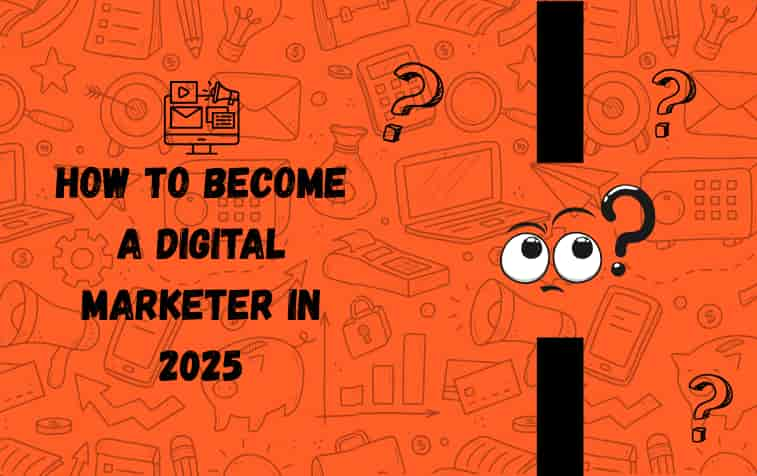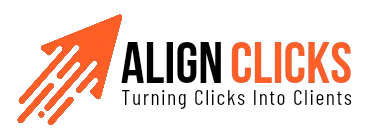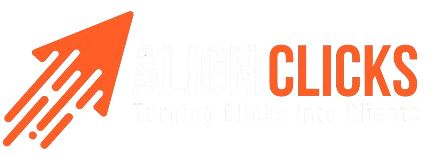Digital marketing isn’t just a trending term—it’s a dynamic, in-demand career path that grows as the world becomes increasingly digital. From large corporations to solo entrepreneurs, everyone is investing in digital channels to reach their audience. If you’re wondering how to become a digital marketer, you’ll be pleased to know that your background matters less than your skills and curiosity.
Table of Contents
Reasons for Becoming a Digital Marketer
- High demand: Companies are consistently increasing their digital advertising budgets.
- Flexibility: Work remotely, freelance, or join full-time roles in agencies or startups.
- Diverse skill sets: Combine creativity with analytical thinking.
- No strict education requirements: You can build a successful career without a marketing degree.
Whether you’re a student, a career switcher, or someone curious about this field, this guide will walk you through the practical steps to becoming a digital marketer.

First, Understand What a Digital Marketer Does.
Before stepping into the field, it’s essential to grasp what digital marketers do day-to-day. The role can vary significantly depending on your niche and the company size.
Key Responsibilities:
- SEO (Search Engine Optimization): Enhancing website content to rank higher on search engines.
- Content Marketing: Creating blog posts, videos, podcasts, and infographics to engage audiences.
- Social Media Marketing: Building and managing a brand’s presence on platforms like Instagram, LinkedIn, and TikTok.
- Paid Advertising (PPC): Running targeted campaigns on platforms like Meta and Google Network.
- Email Marketing: Sending newsletters and automation campaigns to build customer relationships.
- Analytics: Monitoring performance and making data-backed decisions.
Digital marketing is a performance-driven field where your output directly impacts a business’s visibility and revenue.
Is Digital Marketing in Demand?
Still unsure whether this career path has longevity? Let’s look at the market outlook.
Digital marketing is not just relevant—it’s essential. With businesses prioritizing online visibility, the demand for skilled marketers continues to rise. Think about your daily behavior—how often do you search for products on Google, click on social ads, or sign up for a brand’s newsletter? Behind every one of those experiences is a digital marketer.
Why It’s a Growing Field:
- The global digital marketing industry is projected to reach $786 billion by 2026 (Statista).
- Businesses across sectors are allocating bigger budgets to digital strategies year after year.
- Roles like an SEO expert, paid ad strategist, and content marketer remain among the most in-demand jobs.
Digital marketing is one of those rare fields that blends stability with evolution. If you’re wondering how to become a digital marketer with job security, this industry offers diverse career options and adapts well to changing economic landscapes. Plus, opportunities expand beyond big corporations as more small businesses and creators invest in their online presence.
How to Become a Digital Marketer Through Courses and Certifications?
Enrolling in a digital marketing institute for courses and certifications is one of the easiest and most flexible ways to kickstart your digital marketing journey. Think of them as your roadmap—they help you learn in a structured way and signal to employers that you’re serious about your craft.
Best Free & Affordable Courses to Start With
You don’t need to drop thousands of rupees or enroll in a university program. These beginner-friendly platforms offer massive value:
- Google Digital Garage (Free) – A perfect starting point. Their Fundamentals of Digital Marketing course is interactive, bite-sized, and certified by Google.
- HubSpot Academy (Free) – Offers clear, engaging lessons on SEO, email marketing, social media, and content strategy.
- Coursera (Paid but often discounted) – Learn directly from companies like Meta and Google. The certificates are recognized and ideal for those looking to go a bit deeper.
- LinkedIn Learning: Great if you prefer short, actionable video modules. Plus, completion shows up on your LinkedIn profile automatically.
- Sikho Digital Marketing Institute – A reliable option to get hands-on training with practical projects and mentorship.
Pro Tip: Many paid platforms offer a 7-day free trial—use that time to binge-learn!
Must-Have Certifications That Employers Recognize
These aren’t just fancy badges—they show you’ve learned the ropes and can speak the language of digital marketing:
- Google Ads Certification: Essential if you want to run PPC campaigns or get into performance marketing.
- Meta Blueprint (Facebook & Instagram Ads) – A must for aspiring social media marketers.
- HubSpot Content Marketing Certification – Great for demonstrating your content and inbound marketing know-how.
Pro Tip: Add these certifications to your LinkedIn profile and resume. Recruiters often search for them directly—and it boosts your visibility instantly.
Your Future in Digital Marketing Starts Today
Start learning, start testing, and most importantly—start showing up.
Read MoreA degree in marketing can be helpful, but it’s not mandatory. Many successful digital marketers are self-taught or come from unrelated backgrounds.
What You Need:
- Curiosity and a growth mindset: Stay updated with evolving trends.
- Comfort with digital tools: Even basic knowledge of platforms like Google Analytics or Canva can be a plus.
- A small but impactful portfolio: Start with personal projects or help out a friend’s business.
Alternative Learning Paths:
- Free Resources: Google Digital Garage, HubSpot Academy, YouTube.
- Paid Online Courses: Udemy, Coursera, LinkedIn Learning.
- Certifications: Google Ads, Facebook Blueprint, and HubSpot credentials.
Action Tip: Pick one free course—like Google’s Fundamentals of Digital Marketing—and complete it within a week.
Master the Core Areas of Digital Marketing One by One
Digital marketing is broad, so don’t try to learn everything simultaneously. Focus on one area first, then expand.
1. SEO (Search Engine Optimization)
SEO helps websites appear higher on Google search results, increasing organic traffic.
How to Learn:
- Read Moz’s Beginner’s Guide to SEO.
- Use free tools like Ubersuggest.
- Watch tutorial videos and case studies.
2. Social Media Marketing
This involves creating and sharing content on social platforms to build brand awareness and drive engagement.
How to Learn:
- Follow social media managers on LinkedIn.
- Analyze what works on your own Instagram or LinkedIn.
- Study how brands engage with their audiences.
3. Paid Advertising (Google & Meta Ads)
Mastering ads can drive fast, measurable results. Marketers run targeted ads to reach specific audiences.
How to Learn:
- Google Ads Certification (Free).
- Meta Blueprint Courses (Free).
- Test ads using demo accounts or simulated campaigns.
4. Content Marketing
Focuses on creating useful, engaging, and relevant content to attract and retain an audience.
How to Learn:
- Write blog posts or video scripts.
- Study top-performing content across platforms.
- Use Grammarly and SEO tools to optimize writing.
Pro Tip: Choose one core skill, gain confidence, and build from there.
Choose Your Specialization Based on Interests and Strengths
One of the benefits of digital marketing is its diversity. You can specialize in what suits your interests and strengths.
Specialization | Best For | Entry-Level Jobs |
SEO | Analytical thinkers | SEO Assistant, Content Writer |
Social Media | Creatives and extroverts | Social Media Coordinator |
PPC | Detail-oriented and numbers-driven | PPC Specialist, Media Buyer |
Email Marketing | Automation fans and writers | Email Marketing Specialist |
Still exploring? Try freelance gigs or internships across roles to discover your preferences.
Get Hands-On Experience with Free or Low-Cost Projects
Practical experience will set you apart from other job seekers. You can build your portfolio even without a formal job.
Ways to Practice:
- Offer to manage a local business’s Instagram.
- Create a blog or YouTube channel and apply SEO practices.
- Set up a mock Google Ads campaign.
- Volunteer to help NGOs or student organizations with marketing.
Example: Helping a friend grow their café’s Instagram following is not just practice—it’s a portfolio piece.
Start Freelancing or Interning to Test the Waters
Testing your skills in real scenarios helps refine them. Freelancing and internships are great ways to start your journey.
Where to Find Projects:
- Freelance websites: Upwork, Fiverr, PeoplePerHour
- Reach out to local businesses and offer free audits.
- Apply for digital marketing internships on LinkedIn and job boards.
Freelance Tip: Keep your pricing modest initially, focus on quality work, and ask for testimonials.
Build Your Brand as a Budding Digital Marketer
In digital marketing, you are your own best case study. Your online presence isn’t just for scrolling or selfies—it’s your live portfolio, proof of what you know, and often the first thing recruiters or clients notice.
Why Personal Branding Matters:
When you’re just starting, people aren’t hiring you based on your job titles—they’re hiring you based on what they can see you’ve done. Whether it’s a killer blog post or a smart Instagram thread, each piece of content you create is an opportunity to demonstrate your expertise.
Simple Ways to Start Building Your Brand:
- LinkedIn: Share bite-sized insights from what you’re learning. Talk about your SEO wins, ad experiments, or even the mistakes you learned from. Recruiters often scout talent based on your thoughts, not just what you know.
- Portfolio Website: This doesn’t need to be fancy. A clean, one-page WordPress, Wix, or Card site that shows your projects, certifications, or even blog posts is more than enough to impress.
- Social Media Threads: Turn marketing jargon into easy-to-understand tips. For example, break down how you increased engagement on a post by changing the CTA or using trending hashtags. These mini-lessons help position you as someone who knows their stuff.
Example Idea:
Post a short story on LinkedIn:
“Last week, I tweaked an old blog post’s headline and added internal links—and traffic jumped by 60% in two days. Sometimes, small SEO changes = big wins!”
It’s relatable, shows real results, and proves you’re actively learning and experimenting.
Remember: You don’t have to wait to be an expert to share your journey. People connect with progress, not just perfection.
How to Become a Digital Marketer Who Gets Hired?
Let’s face it—learning digital marketing is one thing, but landing that first job can feel like a whole different challenge. You’re not alone if you’ve ever thought, “I’ve taken courses and built a portfolio… now what?” The truth is, job hunting in this field is competitive, but what is the good news? With a bit of strategy and authenticity, you can stand out.
Steps to Landing Your First Job (Even Without Years of Experience):
- Tailor Your Resume Like a Marketer: Think of your resume as a mini ad campaign—what would make you click? Highlight specific projects, metrics, and tools you’ve used. Even managing a friend’s bakery page or improving blog traffic counts. Use active verbs like “boosted,” “launched,” or “analyzed.”
- Build Real Connections, Not Just a Contact List: Join Facebook groups, follow digital marketing pros on LinkedIn, and don’t be afraid to comment or ask thoughtful questions. Sometimes, one conversation can lead to a referral or opportunity.
- Apply Smart, Not Just Fast: Focus on entry-level roles like Junior Digital Marketer, Content Assistant, or Marketing Intern. Read job descriptions carefully—if you meet 70% of the criteria, go for it!
- Bring Your Work to Life: In interviews, don’t just discuss your skills—show them. Bring a digital portfolio with screenshots, campaign results, or blog links. Even a simple Google Doc can do the job if it’s well organized.
- Bonus Tip—Follow-Up: After interviews, send a short thank-you note. Mention something specific from the conversation. It shows you care and keeps you memorable.
Keep Learning—Because Digital Marketing Never Stays Still
The digital landscape evolves constantly. Lifelong learning is part of the job.
How to Stay Updated:
- Follow blogs like HubSpot, Align Clicks and SDM
- Join Reddit threads (e.g., r/digitalmarketing).
- Attend free webinars from SEMrush, Google, and Ahrefs.
The more informed you are, the more valuable you become.
Conclusion: Your Journey to Becoming a Digital Marketer Starts Now
Digital marketing is one of the few careers where action matters more than theory. If you’ve been thinking about becoming a digital marketer, the key is to start small and stay consistent.
Next Steps:
- Pick one core area (SEO, content, ads) and master it.
- Practice what you learn through small, real-world projects.
- Build a simple portfolio showcasing your results.
- Apply for internships or freelance gigs.
- Never stop learning—keep growing with the industry.
Your digital marketing career begins the moment you start. Don’t wait—take that first step today.



